Personal social networks (6th post): how can we look after our relationships better?
Last updated on 24th October 2018
I have recently written a series of blog posts about relationships - "Personal social networks (1st post): Dunbar's 5-15-50-150 model", "Personal social networks (2nd post): the sympathy group & the full active network", "Personal social networks (3rd post): assessing how we're doing", "Personal social networks (4th post): birds of a feather flock together" & "Personal social networks (5th post): the frequency of conflict". This post on "How we can look after our relationships better" is the sixth & last of this sequence.
I use several different metaphors when thinking of personal social networks. For example, I say that they should usually look like a pyramid-shaped 'mountain' rather than a flat-topped hill or a flagpole. This highlights the typical approximate (1-2)-5-15-50-150 distribution of many healthy personal networks. There are good evolutionary/survival reasons for this pattern - see, for example "Modelling the role of trust in social relationships" which highlights the value of these "multilevel social structures, with a few strong relationships, more medium ties, and large numbers of weak ties". I also say that network relationships are a bit like 'food' - we need a regular, varied, healthy diet. Or they're like an orchestra, or at least a 'group of musicians', where one makes different kinds of music/interacts differently with different members/different network layers. Or (and this is particularly relevant for this blog post), a personal social network can be thought of as a 'garden'. We need to look after it, 'watering/feeding' the relationships regularly. Two key characteristics that distinguish the strong ties of the inner layers of our social networks from the weaker ties of the outer layers are emotional closeness and frequency of contact. I would also suggest from personal experience that quality of contact is important. This, for me, means that with my closest relationships it's good to share one-to-one time as well as the more diluted contact that tends to occur in larger social groupings
The 2015 paper "Managing relationship decay: network, gender, and contextual effects" emphasises the importance of 'watering' our relationship 'garden' regularly, with its abstract reading "Relationships are central to human life strategies and have crucial fitness consequences. Yet, at the same time, they incur significant maintenance costs that are rarely considered in either social psychological or evolutionary studies. Although many social psychological studies have explored their dynamics, these studies have typically focused on a small number of emotionally intense ties, whereas social networks in fact consist of a large number of ties that serve a variety of different functions. In this study, we examined how entire active personal networks changed over 18 months across a major life transition. Family relationships and friendships differed strikingly in this respect. The decline in friendship quality was mitigated by increased effort invested in the relationship, but with a striking gender difference: relationship decline was prevented most by increased contact frequency (talking together) for females but by doing more activities together in the case of males."
Staying with the garden analogy, kin relationships tend to be hardier plants than friendship relationships. So, on the whole, to maintain emotional closeness we typically need to put in a bit more regular effort to look after (to water/nourish) non-genetically related friendships than we do for links with kin - see the study I mentioned in the last paragraph and, for example "Communication in social networks: Effects of kinship, network size, and emotional closeness". It also seems that there are differences between men & women in how relationships are maintained with male friendships tending to rely more on shared activities and female friendships being more conversation based - see the previous paragraph and "Women favour dyadic relationships, but men prefer clubs: cross-cultural evidence from social networking". There is some evidence though, that these gender differences are changing - for example "Stepping out of the caveman’s shadow: nations’ gender gap predicts degree of sex differentiation in mate preferences" - and it seems that these shifts may be associated with encouraging benefits e.g. "Testing the empathizing-systemizing theory in the general population: occupations, vocational interests, grades, hobbies, friendship quality, social intelligence, and sex role identity".
The following 'friendship rules' give some good, simple suggestions on how to nourish these deep connections:
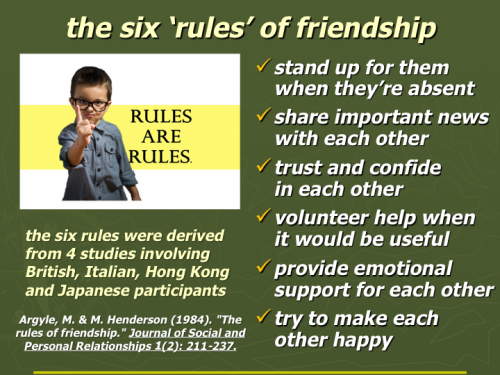
The research paper "Which relationship skills count most? A large scale replication study" is interesting here as well. Although its focus was on satisfaction in couple relationships - based on responses from 25,507 questionnaire responders from 58 countries - many of the findings are very likely to be relevant for other close relationships. So the authors reported "two competencies (of seven assessed) - communication and knowledge of partner - proved to be the strongest predictors of self-reported satisfaction in current relationships, a finding that might help provide some guidance for relationship education and therapy." Intriguing!
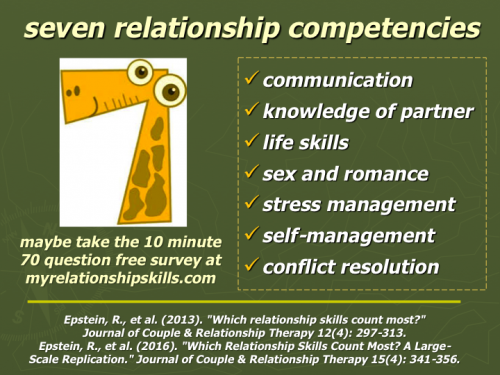
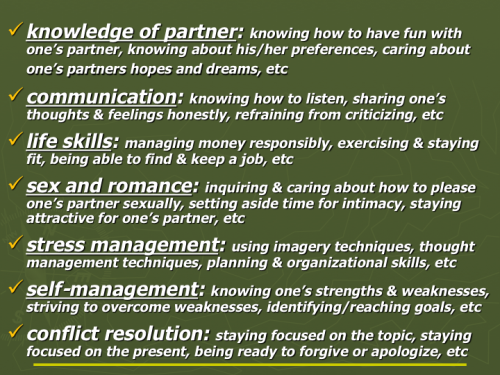
Communication involved "knowing how to listen, sharing one’s thoughts and feelings honestly, refraining from criticizing, etc." and relevant questions assessed agreement/disagreement with statements like "I often ask for feedback from my partner", "I know how to describe my feelings accurately", "I always try to be honest with my partner", "I praise & encourage my partner far more often than I criticise him/her" & "I frequently encourage my partner to express his/her views". You can see how these kinds of statement can be assessed for pretty much any close relationship.
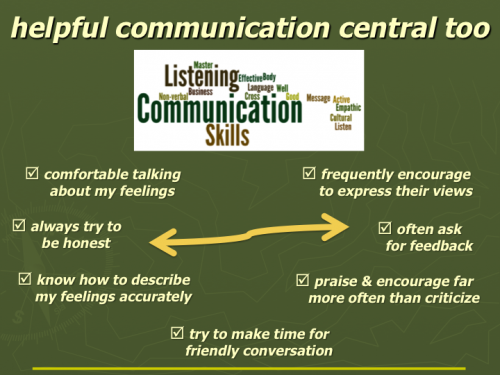
The Knowledge of partner competency involved "knowing how to have fun with one’s partner, knowing about his/her preferences, caring about one’s partner’s hopes and dreams, etc." and was assessed with agreement/disagreement for statements like "I always remember my partner's birthday & other special days", "I always know what my partner's hopes & dreams are", "I always know all about my partner's family" & "I regularly ask my partner about his or her tastes, preferences & passions". Again asking about these things can be relevant in caring for most close relationships with both kin and with friends. Although this competency is labeled as Knowledge, it could maybe be more accurately labeled as caring, interest, valuing and wanting to support & cherish the other person.
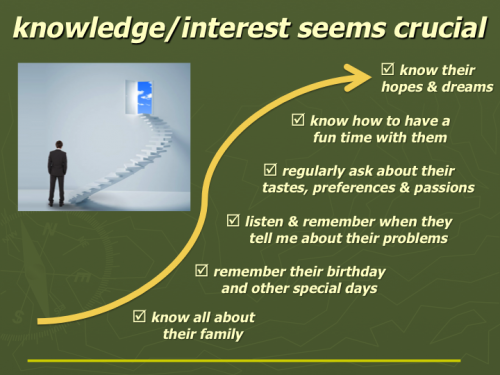
It reminds me of the section on Love maps in John Gottman's fine book "The seven principles for making marriage work". Even though I'm cautious about the accuracy of self-report questionnaires, I do think the results of this "Which relationship skills count most?" survey are interesting and probably helpful in underlining ways of looking after & deepening our close relationships. You can take the relationship skills test for free in about 10 minutes at "myrelationshipskills.com" and you get a report on your strengths & weaknesses.
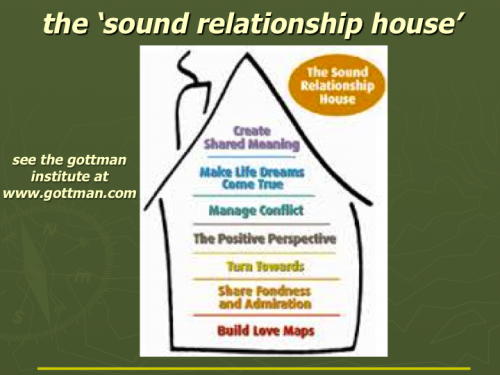
So there we have it ... half a dozen posts on personal social relationships. This is so important for our health & wellbeing, it's well worth learning about, reflecting on, and acting on.
